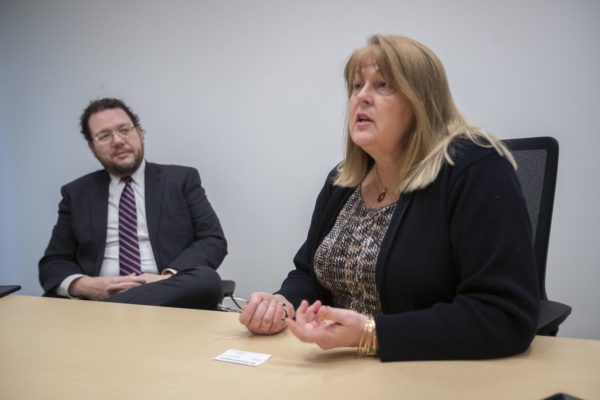WASHINGTON – The Supreme Court refused the Trump administration’s request Tuesday to block a lower court order requiring stepped-up efforts against the spread of the coronavirus at a low-security federal prison in Ohio.
The high court’s action represented its most significant intervention to date related to the deadly impact of COVID-19 inside federal prisons.
The low-security Elkton Federal Correctional Institution in northeast Ohio faces a potential large-scale transfer of elderly, medically vulnerable inmates to less dangerous types of custody, including home confinement, under a federal court order. As many as 837 inmates could be affected out of a total prison population of some 2,500.
The high court refused to put the evaluation of those inmates on hold at the request of the Trump administration, “without prejudice to the government seeking a new stay if circumstances warrant.” Associate Justices Clarence Thomas, Samuel Alito and Neil Gorsuch would have granted the administration’s request.
Across the country, state and federal prisons have become a hotbed of coronavirus infections. Hundreds of prisoners and several dozen prison staff have died, according to the American Civil Liberties Union, which represents four Elkton inmates in the Ohio case.

The outbreaks within the federal prison system have drawn the scrutiny of Attorney General William Barr, who has dispatched teams to examine conditions at the hardest-hit facilities, including prisons in Louisiana, Ohio, North Carolina and California.
More:Prisoners sue for release from troubled federal prison where coronavirus has killed 5 inmates
Federal Bureau of Prisons Director Michael Carvajal defended the agency’s response to the increasingly deadly COVID-19 outbreak earlier this month, saying recent inmate testing revealing infection rates as high as 70% are “in no way representative” of conditions across the system.
But steps have been taken to move some low-risk inmates to home confinement. Among them: Michael Cohen, President Donald Trump’s former personal lawyer serving a three-year sentence, and Paul Manafort, Trump’s former campaign chairman serving a combined sentence of 7½ years.
The Supreme Court ruled earlier this month against two elderly federal prison inmates in Texas seeking protections from the coronavirus. Another case is pending in Louisiana.
In the Texas case, Associate Justice Sonia Sotomayor warned that “while states and prisons retain discretion in how they respond to health emergencies, federal courts do have an obligation to ensure that prisons are not deliberately indifferent in the face of danger and death.”
In the Ohio case, U.S. District Judge James Gwin ruled last month that the Bureau of Prisons needed to do more to identify and protect vulnerable inmates. Then last week, he demanded faster action, estimating that 1 in 4 prisoners at the facility was infected.
The Supreme Court noted Tuesday that the Justice Department only appealed Gwin’s initial order and can still contest the later one.
U.S. Solicitor General Noel Francisco had urged the justices to block the lower court’s requirements, noting that the coronavirus pandemic “has created extraordinary public health risks in this country and around the world” and that federal prison authorities are “working assiduously to mitigate those risks.”
Nevertheless, Francisco acknowledged that nine Elkton inmates have died from the virus. The ACLU says another 162 prisoners and seven staff are currently COVID-positive.
“We commend the court for choosing to reaffirm the rights of the people incarcerated at Elkton prison, for whom a prison sentence must not become a death sentence,” ACLU national legal director David Cole said.
In court papers, Cole had noted that Elkton inmates “are housed, cheek by jowl, in dormitory-style rooms of approximately 150 persons each. Though well aware that social distancing is an indispensable means of protecting themselves, they are powerless to use it.”



